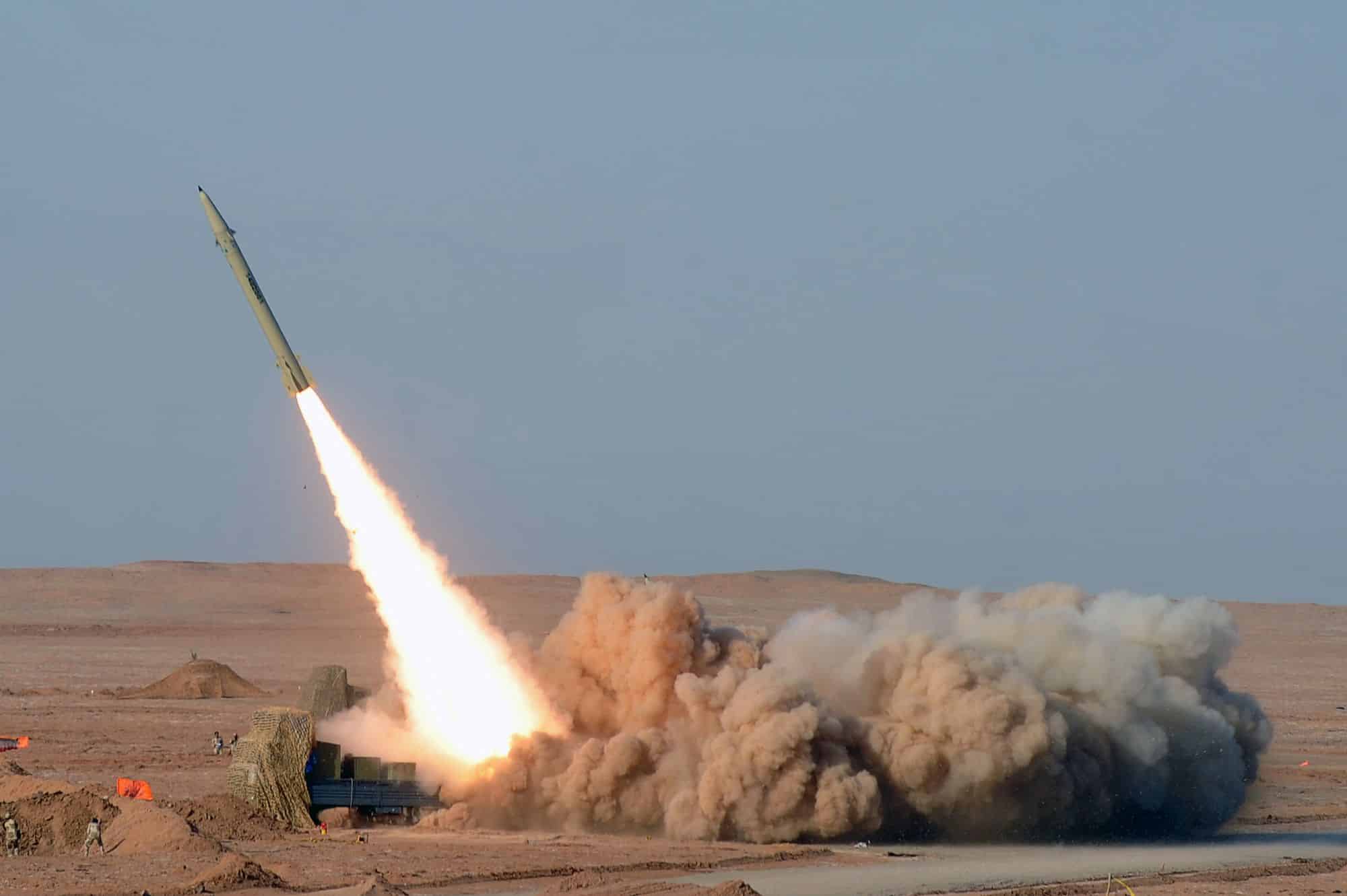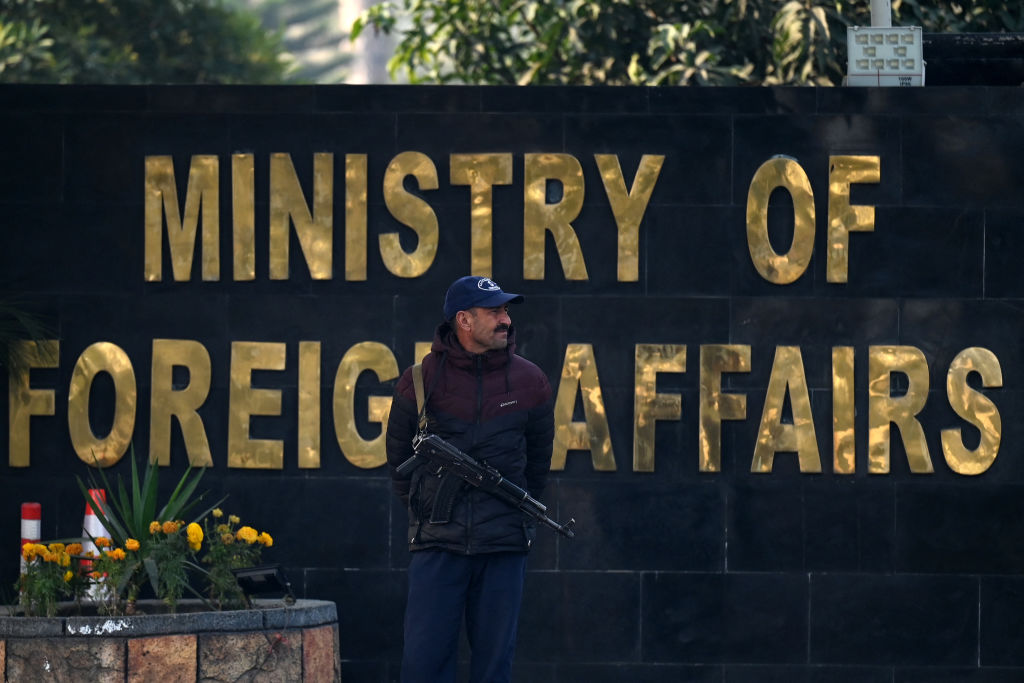Islamabad – Pakistan launched airstrikes against alleged militant hideouts inside Iran on Thursday, killing at least nine people in retaliation for Iran’s same raid days earlier and escalating tensions with its neighbour as the regional crisis escalated.
The unprecedented attacks by Pakistan and Iran on each side of their border appeared to target Baluch armed organizations with identical separatist objectives. The governments accuse one other of providing safe shelter for the groups on their territories.
Following Iranian bombings in Iraq and Syria late Monday, a flare-up between Iran and Pakistan occurs as the Middle East remains tense due to Israel’s conflict with Hamas in the Gaza Strip. These airstrikes were in retaliation to a suicide bombing in Iran by Islamic State extremists in early January, which killed more than 90 people.
Pakistan – Iran Border Tensions: Retaliatory Strikes Kill 9
Iran and nuclear-armed Pakistan have traditionally viewed each other with distrust when it comes to militant attacks, but observers think this week’s tit-for-tat bombings were at least partially motivated by internal political concerns.
Iran is grappling with protests against its theocracy and has been under pressure to respond since the Islamic State suicide bombing. It is also attempting to demonstrate military might at a time when the militant groups it backs in the region—Hamas in Gaza, Hezbollah in Lebanon, and Houthi rebels in Yemen—are embroiled in the Israeli-Palestinian conflict.
Meanwhile, Pakistan was unable to ignore Iran’s bombings on Tuesday as it confronts a critical February general election in which its military is a significant political force.
“The government and military have been under immense pressure,” said Abdullah Khan, an analyst with the Pakistan Institute for Conflict and Security Studies. “Iran celebrated (Tuesday’s) attack in its media and the Pakistani public perception of a strong army is not as it used to be, so it had to respond.”
The Pakistani Foreign Ministry described Thursday’s attack as “a series of highly coordinated and specifically targeted precision military strikes.”
The ministry stated that it received “credible intelligence of impending large-scale terrorist activities” and declared “unflinching resolve to protect and defend its national security against all threats.”
Pakistan’s military described employing drones, rockets, and “standoff weapons,” which are missiles fired from planes at a distance – implying that Pakistan’s fighter jets did not enter Iranian airspace.
Anwaarul-Haq-Kakar, Pakistan’s interim Prime Minister, has left his vacation to the World Economic Forum in Davos, Switzerland, to return home. Kakar is scheduled to meet with Pakistan’s military and intelligence chiefs and other senior government officials on Friday.
Ali Reza Marhamati, deputy governor of Iran’s Sistan and Baluchestan province, provided fatality estimates for Thursday’s strike, stating that the deceased included three women, four children, and two men near the town of Saravan on the border. He said the deceased were not Iranian nationals.
The Baluch Liberation Army, an ethnic separatist group that has been active in the region since 2000, said in a statement that the strikes “martyred innocent Baluch people.”
Pakistani retaliatory strikes in Iran kill at least 9, raising tensions along border
HalVash, an advocacy group for the Baluch people, posted photographs online that appeared to reveal the remains of the munitions used in the strike. It stated that several residences in Saravan had been struck. It posted videos of a mud-walled building damaged and smoke rising from the hit.
Iran later summoned Pakistan’s charge d’affaires to the country. Pakistan had already withdrawn its ambassador following Tuesday’s incident.
Pakistan titled their operation “Marg Bar Sarmachar,” which translates to ”death to the guerrillas.”
For more than two decades, Baluch nationalists have waged a low-level insurgency in Pakistan’s Baluchistan region and Iran’s neighbouring Sistan and Baluchestan province.
However, the categories targeted this week differ. Jaish al-Adl, the Sunni separatist group Iran attacked on Tuesday, evolved from Jundallah, another Islamic extremist group with apparent ties to al-Qaida. Jaish al-Adl has long been accused of operating from Pakistan and undertaking strikes against Iranian security forces.
The Baluch Liberation Army, which has no religious component and has carried out attacks against Pakistani security forces and Chinese interests, is suspected of sheltering in Iran. The Baluchistan Liberation Front is similarly nationalistic.
The potential of escalation persisted Thursday as Iran’s military began a planned yearly air defence rehearsal stretching from the port of Chabahar near Pakistan across the country’s south to Iraq.
Iran and Pakistan share a 900-kilometre (560-mile) border that is mainly anarchic, allowing smugglers and militants to cross freely. The route is also important for worldwide opium trafficking coming out of Afghanistan. Separately, the Taliban urged patience in the face of rising tensions.
The cross-border attacks have raised concerns in both Iran and Pakistan about their military capabilities, particularly their radar and air defence systems.
Pakistani retaliatory strikes in Iran kill at least 9, raising tensions along border
Such technologies are critical for Pakistan since tensions with India, their nuclear-armed neighbour, are constantly low. Their equipment has long been stationed on the borders rather than the border with Iran. Iran relies on these technologies to defend itself against prospective attacks from its primary adversary, the United States.
The tensions include significant geopolitical factors. Pakistan’s air force is reliant on fighter jets from the United States, China, and France, and some of this foreign weaponry was utilized in Thursday’s attack.
China, a key partner in both countries, has advised prudence. Beijing is a major regional player with a significant development project at Gwadar port in Pakistan’s Baluchistan area.
The United States also worked to reduce tensions. “There’s no need for escalation,” said Matthew Miller, a US State Department official.
SOURCE – (AP)














